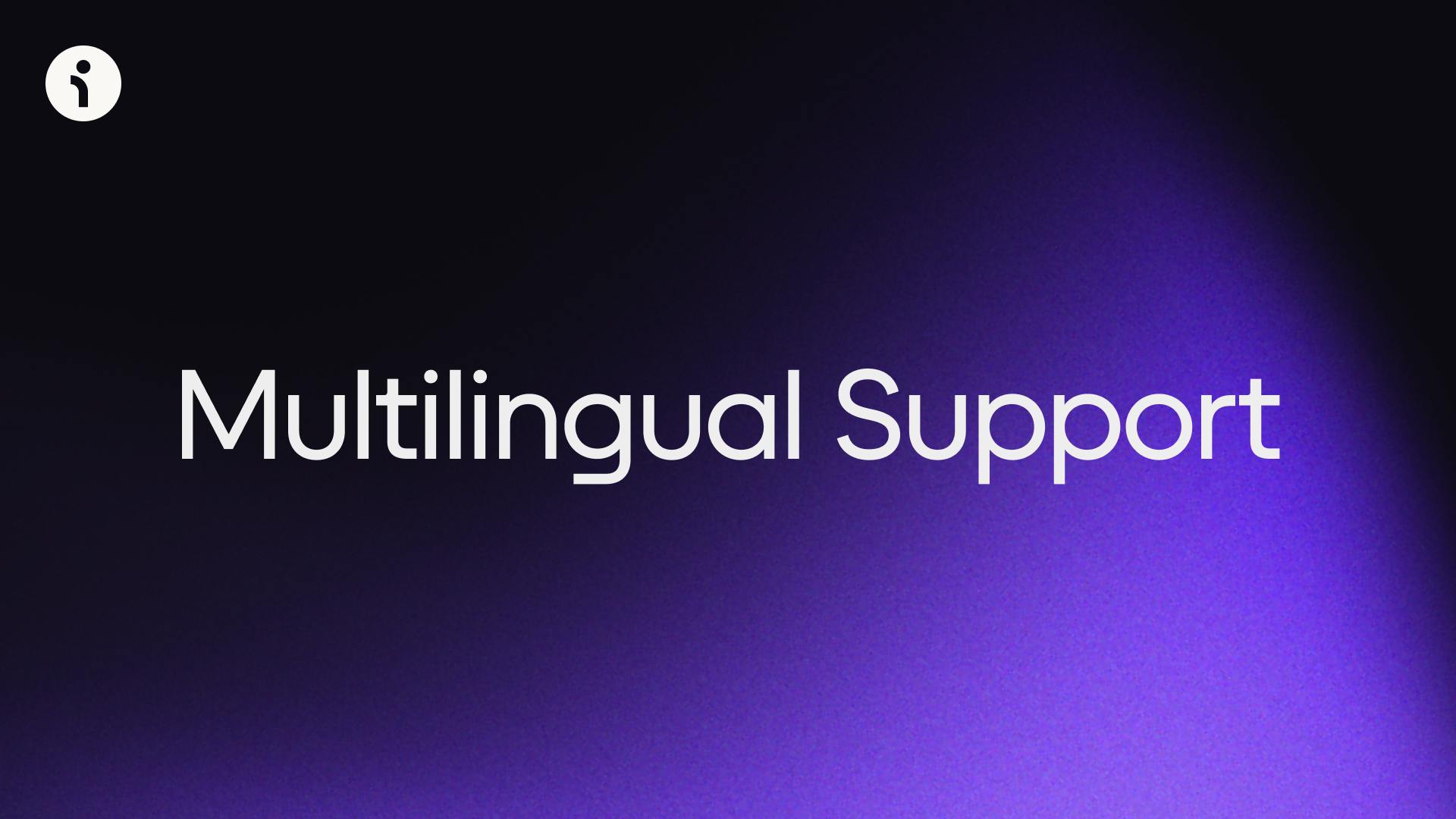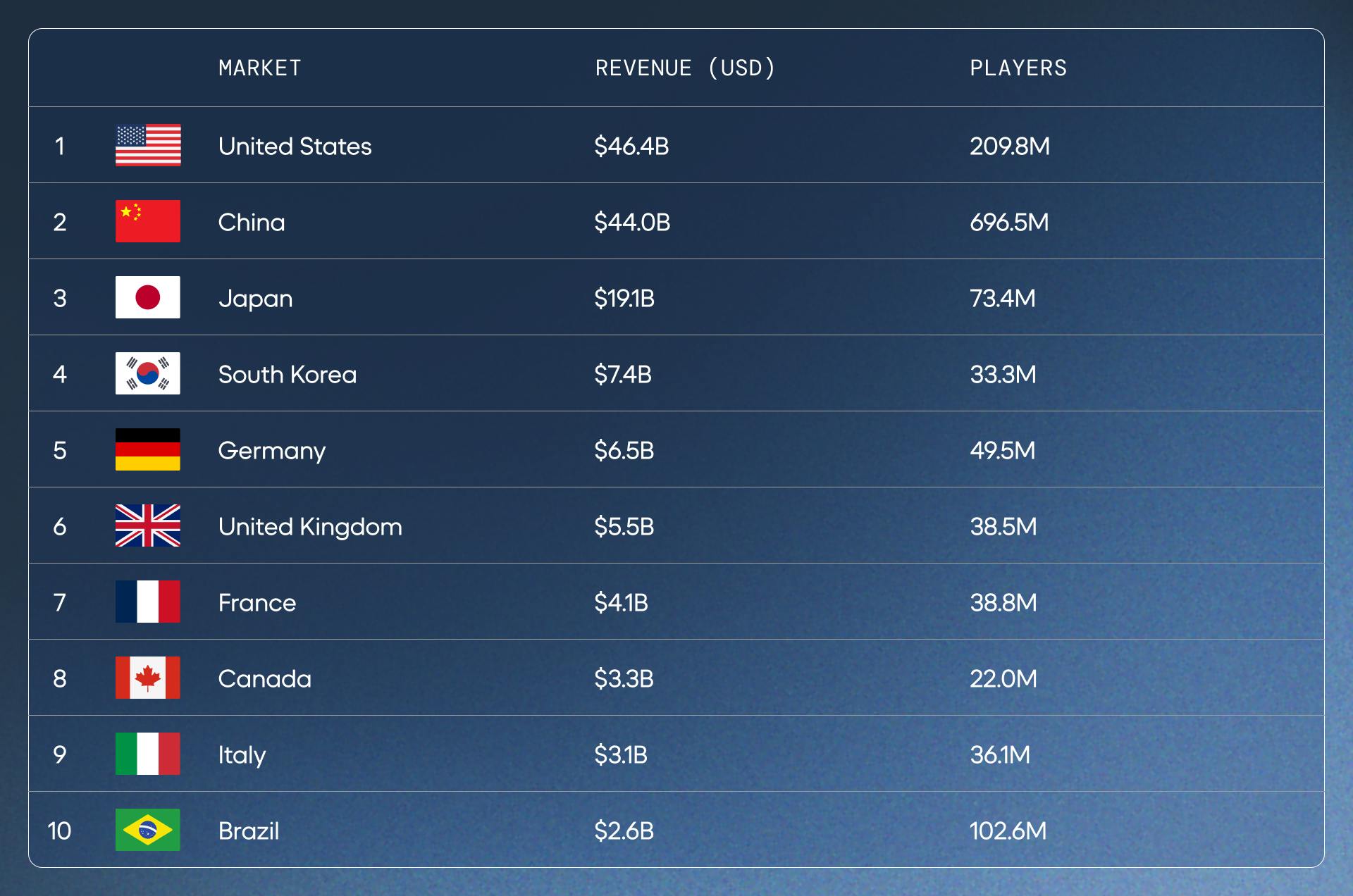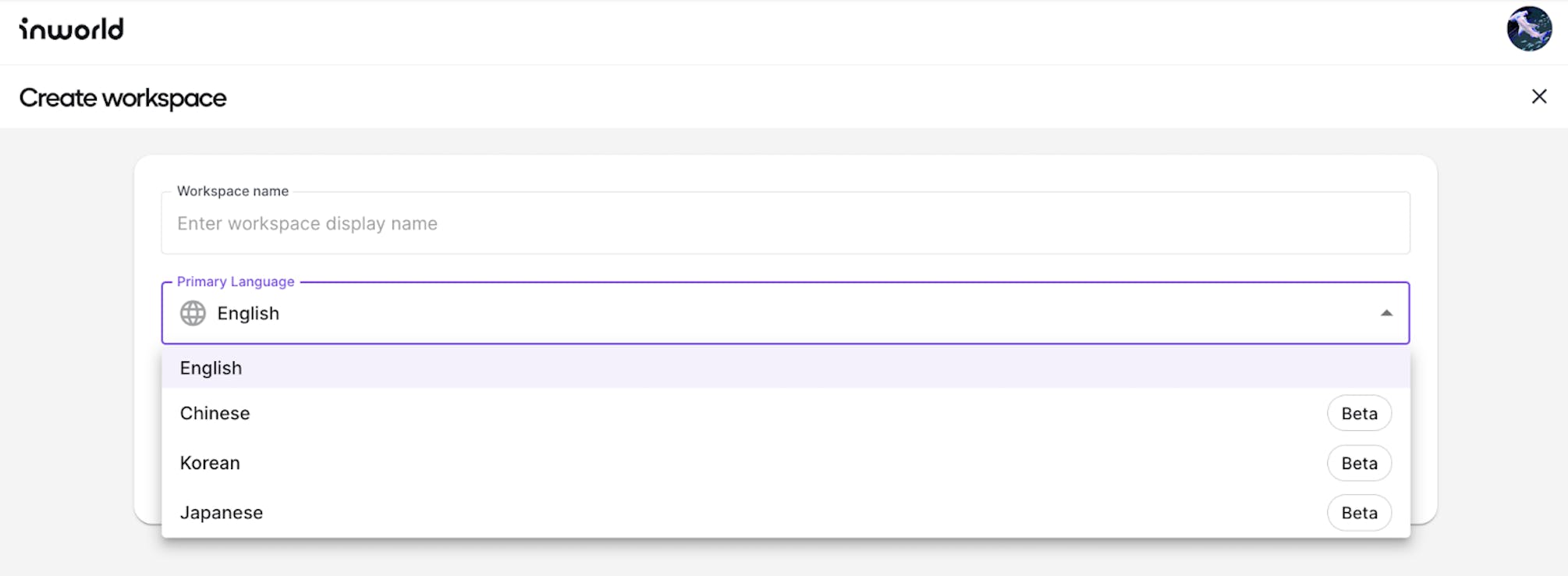Multilingual AI Models for Japanese, Korean, and Chinese Mandarin

According to Newzoo, only three of the world’s top 10 gaming markets have English as an official language. While these markets boast an impressive 270 million players and $55.3 billion in revenue combined, the rest of the gaming markets on the list are home to 1 billion players and $86.8 billion gaming revenue.
Numbers like those clearly demonstrate why localization – or creating gaming experiences just for those markets – is so important. And why more companies are doing it.

Localization improves accessibility – and ratings
Typically, localization is done via methods that include translating text or dubbing over dialogue. These last-mile efforts are vital to making games relevant and accessible to international players.
Localizing UI and game instructions, for example, ensures gamers can understand in-game instructions and messages. Meanwhile, localizing NPC dialogue ensures that players can understand and form meaningful connections with storylines, deepening their emotional investment in the game world.
In studies, positive localization feedback has been found to correlate with higher overall ratings and recommendations on both Steam and app stores, while the absence of localization can lead to frustrated players and lower ratings. These localization-related ratings can have a significant impact on game discoverability and purchasing decisions.
Beyond translation: Inworld’s Multilingual Support
With Inworld’s new Multilingual Support feature, creators can now create AI-powered experiences directly in Mandarin (simplified Chinese), Japanese, and Korean. Developed with feedback from our partners including LG U+ and dentsu. Multilingual Support enables:
- Localization use cases where AI characters can be quickly and easily localized
- The ability to create games native to supported languages and markets
It also introduces the ability to culturally localize games. While most games rely solely on translation and dubbing to localize their games, the best practice in localization is to also shift cultural references or tweak characters to be more familiar to their target market. However, these more complex localization projects often require significantly more time and resources.
Inworld makes cultural localization easy. Creators simply translate and tweak the character descriptions to be more culturally relevant. Our Multilingual Support feature takes it from there. We’ve re-engineered our conversational pipelines for each language to ensure dialogue is natural, safe, and culturally appropriate.
We use:
- LLMs that are optimized for conversation naturalness in the supported languages
- Enhanced knowledge retrieval that can draw from culturally-relevant knowledge bases
- Configurable Safety customized for each supported language and cultural context
- A new set of expressive text-to-speech voices
Why we chose native dialogue vs. machine translation
Many companies serve non-English use cases by translating to and from English via large language models (LLMs) with multilingual capabilities. However, the roundtrip translation often results in a loss of conversation naturalness and cultural appropriateness.
Often, commercially available LLMs are trained primarily using English-language texts. But research shows that outputs by LLMs trained on a small proportion of native language data, can result in dialogue that either sounds like dubbed old television shows or is void of specific immersive cultural elements that don’t exist in the English lexicon. For example, they would struggle to situated items such as 屏風 in a game set in 9th century Japan (pronounced Byōbu, these are are Japanese folding screens, used to separate interiors and enclose private spaces).
As a first step in our development of this feature, we reviewed, benchmarked, and chose the best LLMs for generating native dialogue in the languages we support.
How Multilingual Support works
Configuration of your characters in-studio can now be done in Japanese, Korean, or Chinese Mandarin. This allows developers to also add things like ‘verbatim’ phrases, different region-specific dialog styles, and customized safety settings for different markets. Contact us to get started with Multilingual Support.

Standalone voice API & future voice roadmap
In addition to powering AI agents through our AI Engine, our Multilingual Support feature also extends to our standalone voice API offering – which includes expressive voices in Mandarin, Japanese, and Korean to record dialogue for dubbing or to use as text-to-speech for your real-time experience.
Mandarin
Japanese
Korean
Also, we’re hard at work on adding additional languages to our Multilingual Support feature. Our current roadmap is focused on adding French, German, Portuguese, and more! We’ll be updating you as each new language becomes available.
